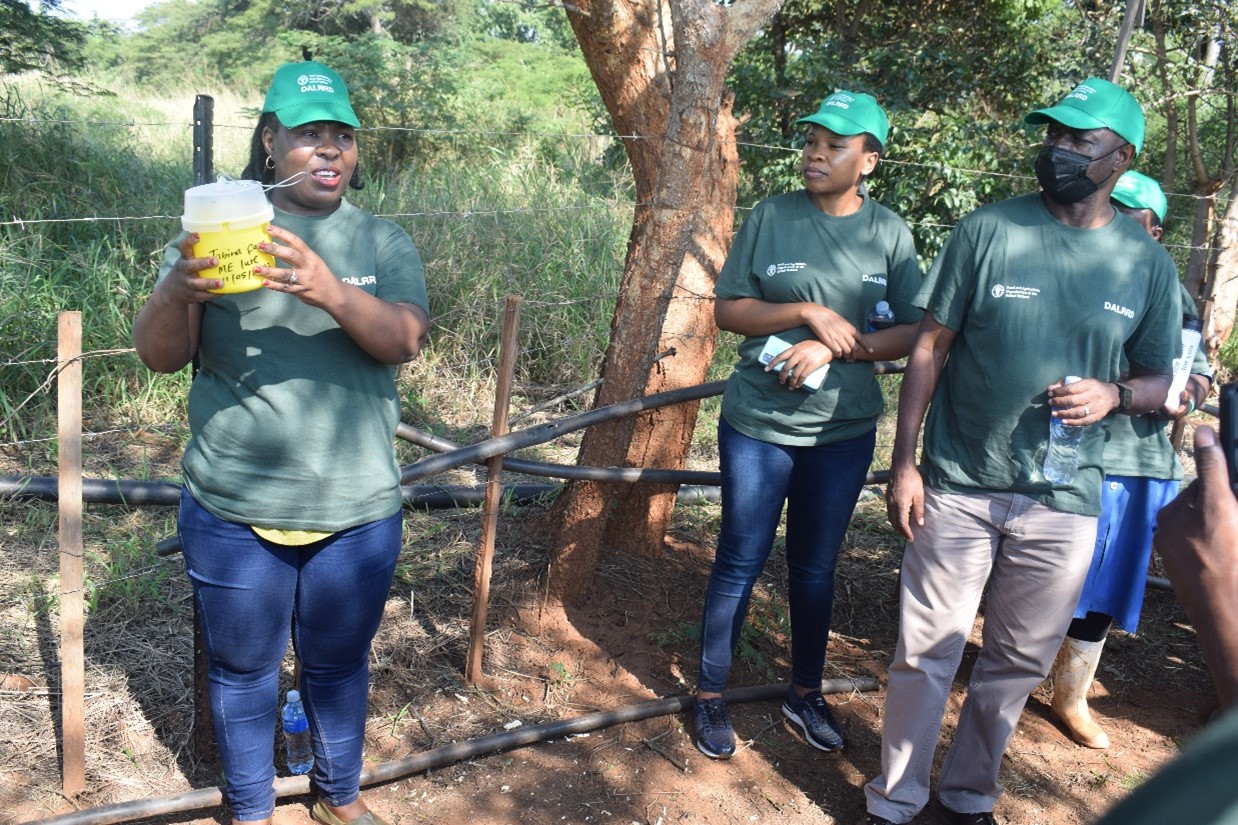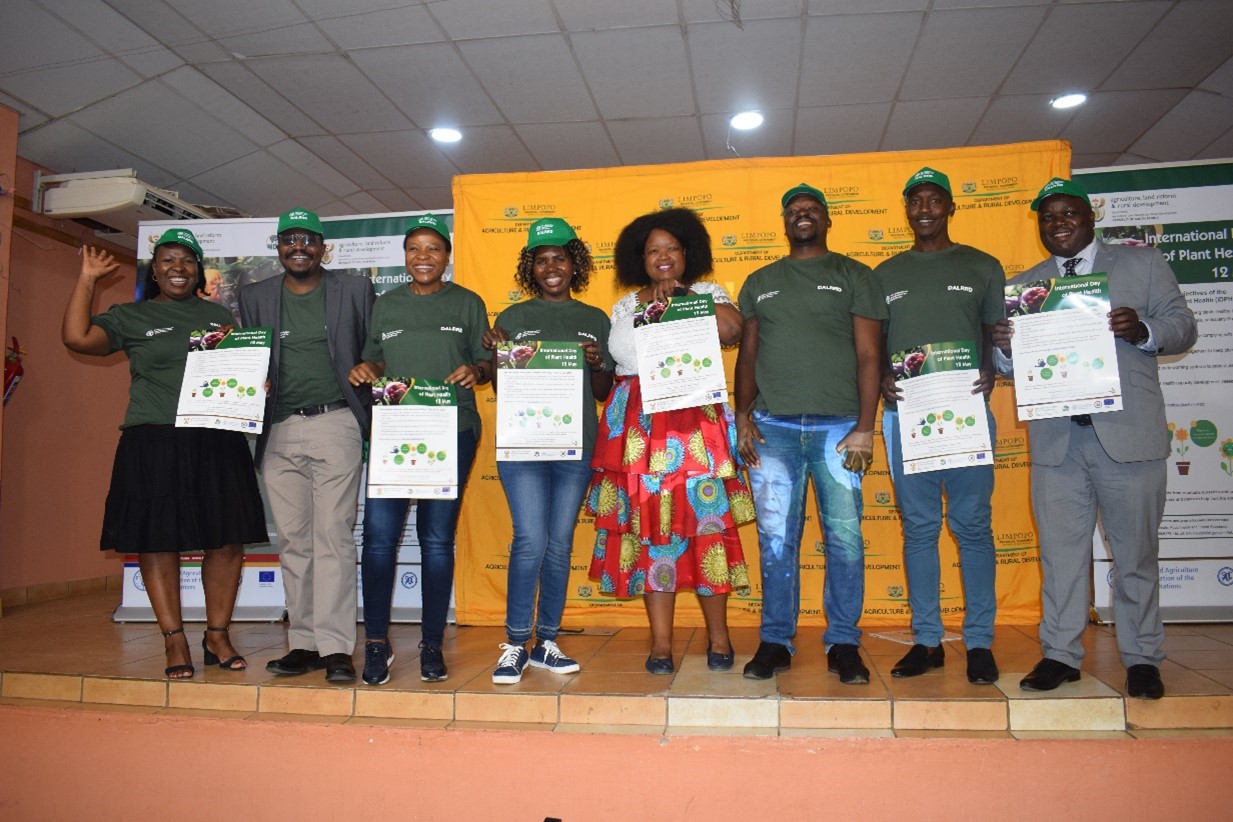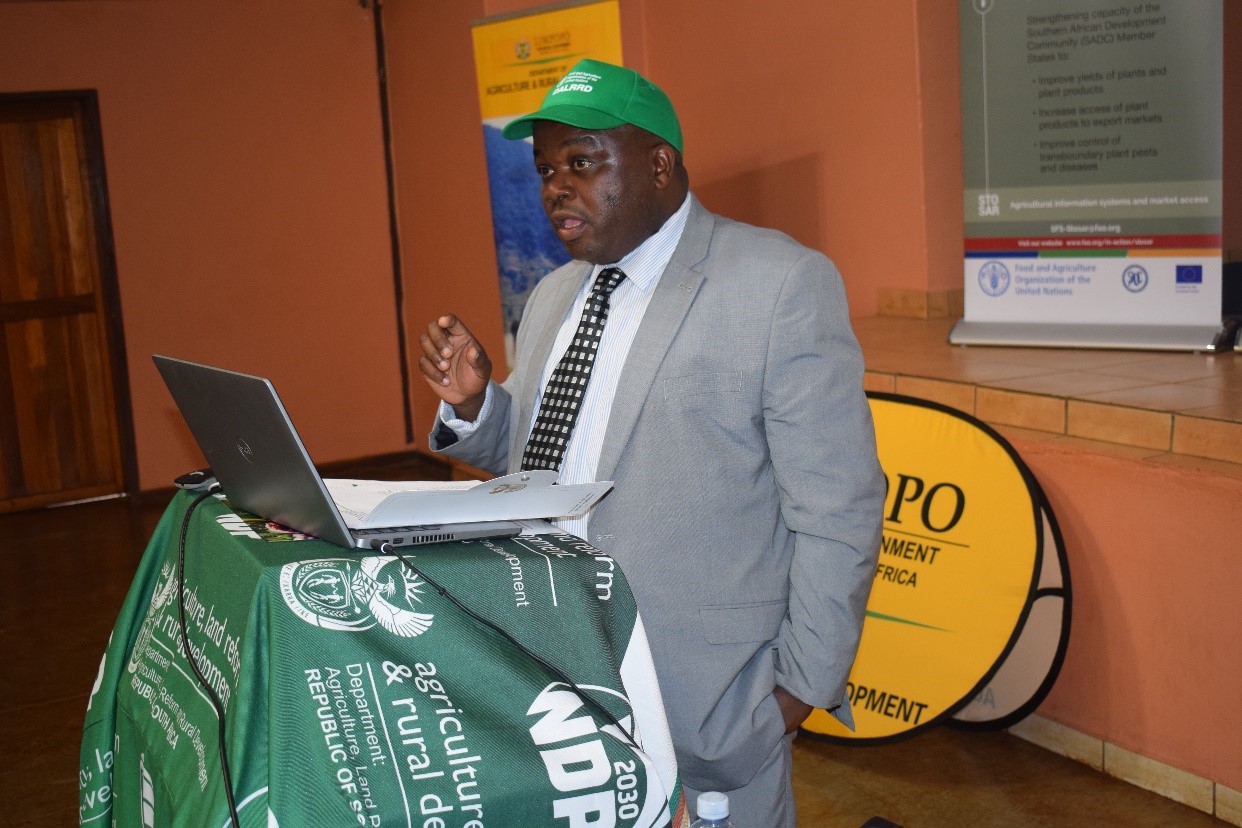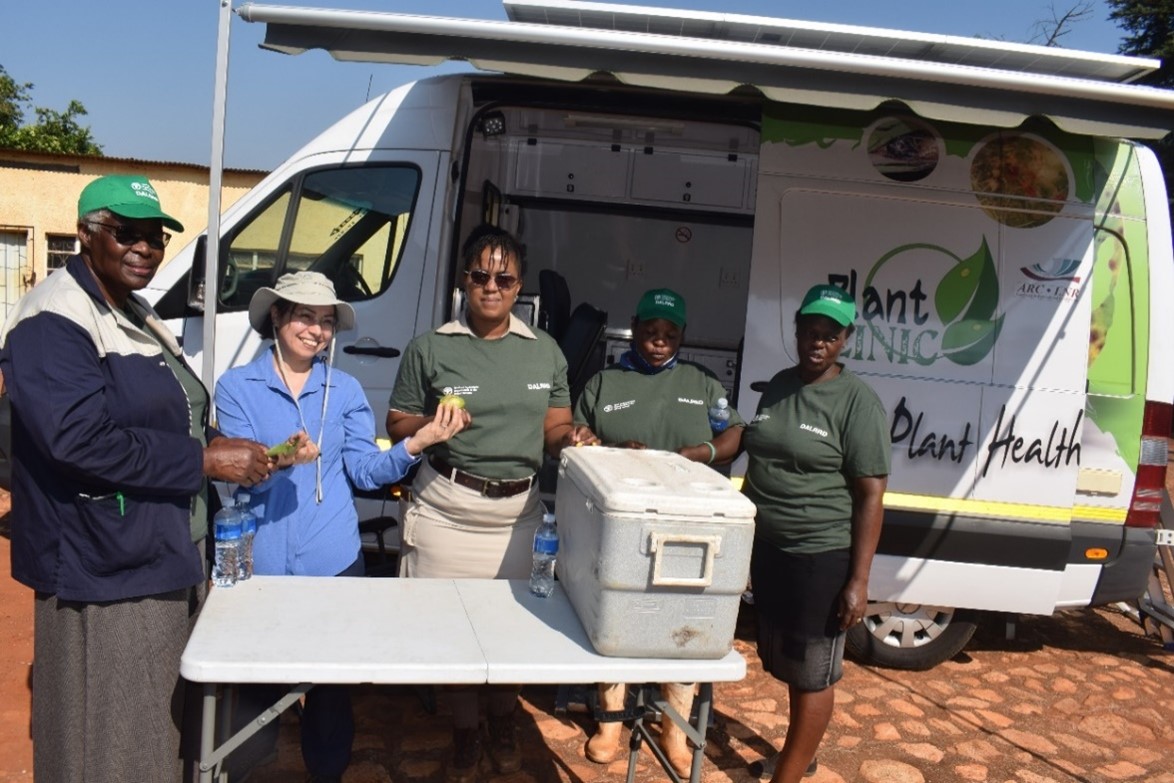By Matsobane Manaka

Department of Agriculture, Land Reform & Rural Development (DALRRD) held the first ever fruitful celebration of International Day of Plant Health in the global calendar of agriculture and environmental matters under the theme, “Plant Health Innovation for Food Security”, on 12 May 2022, at Lenyenye Community Hall, Tzaneen.
“The move is to raise global awareness of how protecting plant health can help to reduce poverty thereby ending hunger, boost economic development and protect the environment”, said Shirley Mathelemuse, from Plant Health Directorate, DALRRD.
In his address, Mpho Sekgala, Deputy Director, Bio-Security, Promotion and Awareness, DALRRD, said plants are under a huge threat. “Approximately 40 per cent of food crops are lost annually across the globe due exotic pests and diseases such as oriental fruit fly, Fall Army Worm, Tomato Leaf Miner (Tuta Absoluta), banana bunchy top virus, maize lethal necrosis disease (not present in SA yet), and panana disease (not present in SA yet). Humans, international travelers traveling with unauthorized material that may serve as carrier for pests and diseases are among contributing threats to biosecurity, agricultural production, food security and market access”, he said.

Looking after the plants can go a long way in increasing food security, said Mathelemuse. In her presentation, Mathelemuse explained that the importance of protecting the plant health can increase food security, income and reduce poverty, prevent high costs associated with pests or diseases, promotes economic development and protection for healthy environment.
Plants play huge responsibility in human activity because a healthy diet starts with #healthy plants, said Mathelemuse. She indicated further about the part those plants play in providing food and oxygen to humans.
Mathelemuse however, urged that it is everybody’s responsibility to play a role by ensuring that plants need protection. “Action to protect plant among others include: use of certified pest free seeds and seedlings, regular monitoring, control and reporting unusual pests to local agric office, adopt environmental-friendly pest management practices, avoid illegal importation of plants and plant products, refrain from moving plants material from infested areas to non-infested areas without removal permit, Invest in innovation and research related plant health and comply with international plant health standards and legislation for safe trade”.

The year 2020 was the international year of plant health and in the same year on 01 October, the Food and Agriculture Organisation (FAO) of the United Nations Committee on agriculture endorsed the proposal tabled by the government of Zambia to proclaim 12 May as the International Day of Plant Health (IDPH). On 29 March 2022, the United Nations General Assembly adopted the resolution proclaiming 12 May as the annual International Day of Plant Health. From here onwards, the celebration will be held annually across the globe.
The celebration goes hand in glove with the acknowledgement of the Support towards the operationalisation of the SADC Regional Agricultural (STORSAR) policy project to intensify the management of transboundary pests and diseases as part of deepening the implementation of the SADC Regional Agricultural Policy.

Second from left is Fahimeh Jami from Agricultural Research Council (ARC) who demonstrates how user-friendly, and accessibility will the plant mobile clinic assist farmers. From left: A farmer, Linda Nkatsane from Exilite 499C, Morongwa Mahasha – Sewape, Maria Malatji from Thabina Irrigation Scheme and Lilly Gana from Thabina Irrigation Scheme


